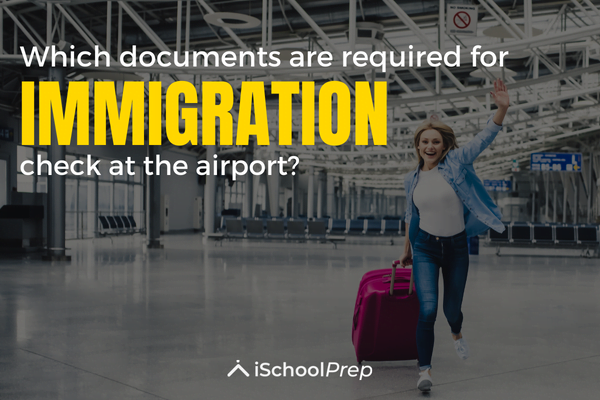Table of Contents
Immigration documents play a crucial role in the lives of individuals seeking to establish their residence, status, and livelihood in a new country. These documents serve as the official proof of identity, legal residency, and eligibility for various rights and benefits, ranging from healthcare access to employment opportunities. For immigrants, possessing the correct documentation is not just a bureaucratic necessity; it is a gateway to a new life filled with possibilities. Whether it’s a Permanent Resident Card in the United States or a Confirmation of Permanent Residence in Canada, these documents validate one’s journey and aspirations. They are essential for navigating the complexities of immigration systems, ensuring compliance with legal requirements, and facilitating integration into society. Without proper documentation, immigrants may face significant barriers, including limited access to services and increased vulnerability to exploitation. Thus, understanding and managing immigration documents for students is vital for embarking on the path of relocation and resettlement.
Explore more: UK immigration | Restriction on PG students bringing dependents!
Immigration Documents: Know their importance
Immigration documents are critical for establishing identity, legal status, and eligibility for various rights and benefits in the United States. Understanding their significance is essential for both immigrants and those interacting with them, such as employers, educational institutions, and government agencies.
Types of Immigration Documents
Permanent Resident Card (Green Card):
- Serves as proof of lawful permanent residency in the U.S. (Form I-551).
- Essential for employment, travel, and accessing social services.
Employment Authorization Document (EAD):
- Allows noncitizens to work legally in the U.S. (Form I-766).
- Must be carried by individuals over 18 years old to demonstrate work authorization.
Arrival-Departure Record (Form I-94):
- Issued upon entry to the U.S., documenting the individual’s immigration status and length of stay.
- Important for maintaining legal status and applying for benefits.
Naturalization Certificates:
- Proof of U.S. citizenship after completing the naturalization process (Forms N-550, N-560, etc.).
- Necessary for voting and obtaining a U.S. passport.
Travel Documents:
- Includes advance parole documents and refugee travel documents that allow re-entry into the U.S. after traveling abroad.
- Important for maintaining residency status while traveling.
Significance of Immigration Documents
- Legal Identity: Immigration documents provide proof of identity and legal status in the U.S., which is crucial for accessing services such as healthcare, education, and employment.
- Eligibility for Benefits: Many public benefits and services require proof of immigration status. For instance, healthcare coverage through the Marketplace necessitates documentation like a Green Card or EAD.
- Compliance with Laws: Carrying and maintaining valid immigration documents is essential for compliance with U.S. immigration laws. Failure to do so can result in legal consequences or loss of status.
- Travel Requirements: When traveling internationally, valid documents required at the airport for international travel are necessary to re-enter the U.S. This includes carrying a passport along with any relevant visas or permits.
Explore More: Australia immigration | 5 reasons why you should move here!
What Documents are required for International Travel?
When planning international travel, it is crucial to have the correct documents to ensure a smooth journey. Below is a detailed overview of the essential documents required at the airport for international travel.
Explore More: 8 Ideal Countries for Student Immigration
Passport
- Description: The passport is the most fundamental document required for international travel. It serves as your primary form of identification and proof of citizenship.
- Requirements: Ensure your passport is valid for at least six months beyond your intended stay in the destination country, as many countries enforce this rule to prevent issues upon entry.
Visa
- Description: A visa is an official authorization that allows you to enter a foreign country. It can be a stamp on your passport or an electronic visa (e-visa).
- Requirements: Depending on your destination, you may need to apply for a visa before departure or obtain one upon arrival. It’s advisable to check the specific visa requirements for the country you plan to visit well in advance.
Flight Tickets
- Description: You must have confirmed flight tickets for both outbound and return journeys.
- Requirements: Keep both electronic and printed copies of your flight itinerary and boarding passes available during travel.
Additional Identification Documents
- Description: Besides your passport, carrying other forms of identification can be beneficial.
- Examples: Driver’s license, national ID cards, or any government-issued ID. It’s wise to have both originals and copies in case one is lost or stolen.
Proof of Accommodation
- Description: Some countries require proof of where you will be staying during your visit.
- Requirements: Carry hotel reservations or any documentation confirming your accommodation arrangements.
Travel Insurance
- Description: While not mandatory in all countries, having travel insurance is highly recommended.
- Purpose: It protects against unexpected events such as medical emergencies, trip cancellations, or lost baggage. Ensure you carry proof of your travel insurance coverage.
Vaccination Certificate
- Description: In light of health regulations, certain destinations may require proof of vaccination against specific diseases (e.g., COVID-19).
- Requirements: Check if vaccinations are needed for entry into your chosen country and carry the necessary certificates.
Currency
- Description: It’s advisable to carry some local currency of the country you are visiting.
- Purpose: Having foreign currency on hand can help with immediate expenses upon arrival, such as transportation or meals.
Consent Form for Travel with Minors
- Description: If you are traveling with children without both parents present, you may need a notarized consent form from the non-traveling parent(s).
- Requirements: This document can help avoid complications at immigration checkpoints.
Explore More: Netherlands immigration: Why immigrate to the Netherlands?
Summary
Immigration documents for students are crucial for establishing identity legal status, and accessing rights like employment, healthcare, and education. Key U.S. documents include Green Cards, Employment Authorization Documents, I-94 records, and travel permits. These ensure compliance with laws and eligibility for services. For international travel, essentials include a valid passport, visas, proof of accommodation, travel insurance, and vaccination certificates. Additional items like flight tickets, local currency, and consent forms for minors are vital for a smooth journey and avoiding legal issues.
FAQs
- Why are immigration documents important?
Ans. Immigration documents verify identity, legal status, and eligibility for rights and services, such as employment, healthcare, and education. They also ensure compliance with immigration laws and facilitate international travel. - What are the essential documents needed for international travel?
Ans. A valid passport, visa (if required), flight tickets, proof of accommodation, travel insurance, vaccination certificates (if applicable), and local currency are essential. Additional ID and consent forms for minors may also be required. - What happens if I lose my immigration or travel documents?
Ans. Report the loss immediately to local authorities or relevant agencies, such as the U.S. Citizenship and Immigration Services (USCIS) or your country’s embassy. Request replacements promptly to avoid legal or travel disruptions.






